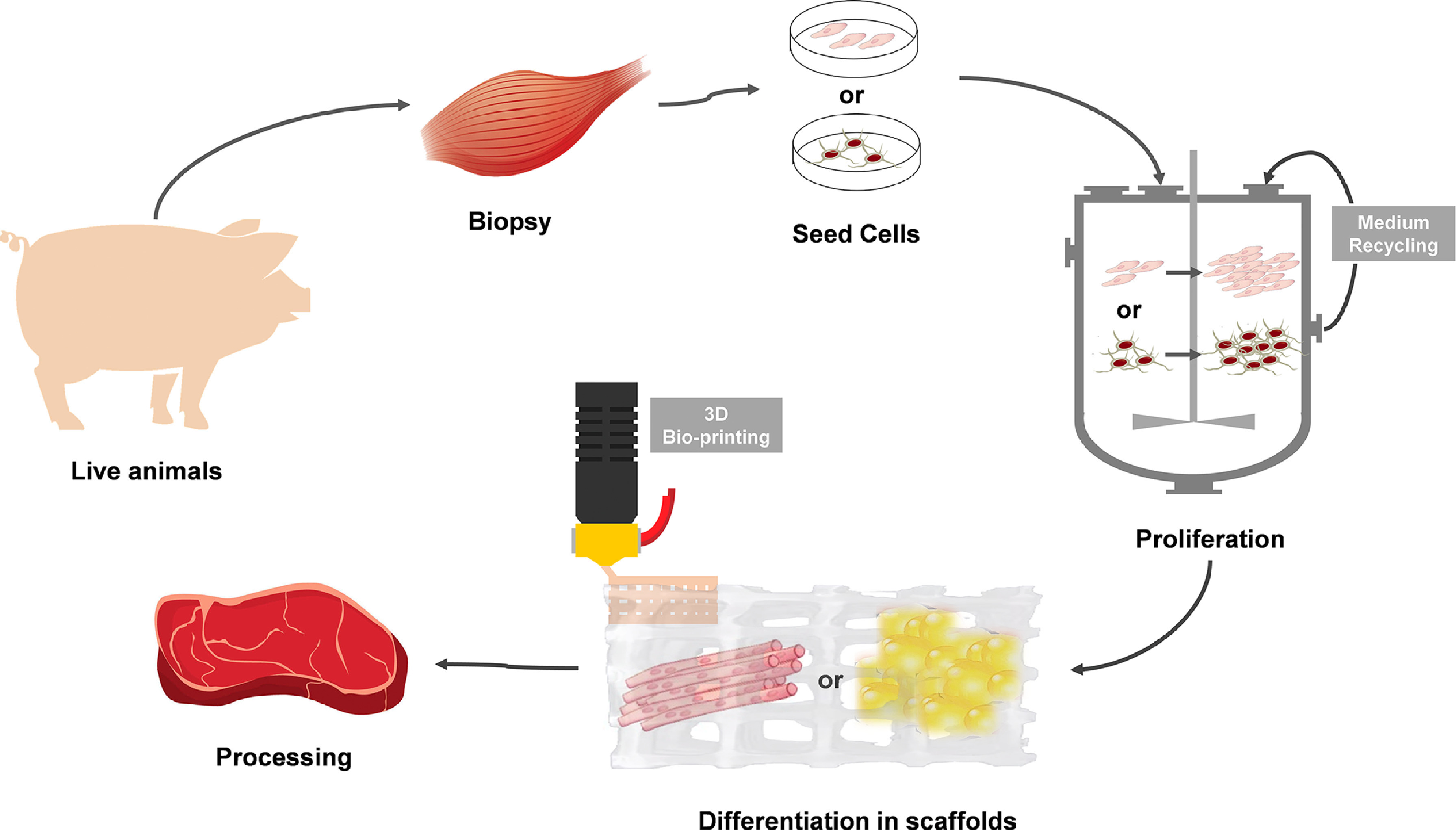Elsevier, Future Foods, Volume 3, June 2021
As future foods, cultured meat is produced by culturing animal cells ex vivo rather than raising and slaughtering animals. It is a promising way to address concerns about resource consumption, environmental pollution, public healthy that associated with conventional livestock production. In the past two years, dozens of cultured meat-related start-ups have been founded and millions of dollars have been raised, demonstrating the high business enthusiasm, broad market prospects and high profitability expected.
Elsevier, One Earth, Volume 4, 18 June 2021
After World War II, the evolution of Europe's agro-food system has been marked by intensified use of synthetic fertilizers, territorial specialization, and integration in global food and feed markets. This evolution led to increased nitrogen (N) losses to aquatic environments and the atmosphere, which, despite increasing environmental regulations, continues to harm ecosystems and human well-being.
Elsevier, Bone, Volume 147, June 2021
Purpose: To investigate the monthly and seasonal variation in adult osteoporotic fragility fractures and the association with weather. Methods: 12-year observational study of a UK Fracture Liaison Service (outpatient secondary care setting). Database analyses of the records of adult outpatients aged 50 years and older with fragility fractures. Weather data were obtained from the UK's national Meteorological Office.
Elsevier, Current Opinion in Environmental Sustainability, Volume 50, June 2021
Droughts are extreme events that have major impacts on communities, ecosystems and economies due to slow onset and complex processes. Land and ecosystem degradation increase the risks of loss and damage during droughts, whereas well-adapted practices and policies can enable society to (re)build resilience. This review highlights actions needed to connect and fill gaps in the present systems for ecological and hydrological monitoring, governance, and alignment of economic incentives at regional, national and local scales.
Elsevier, Current Opinion in Environmental Sustainability, Volume 50, June 2021
Slow onset processes have been increasingly linked to human mobility in the global policy space. Yet, land and forest degradation and desertification (LFDD) as a driver of human displacement and its implications for long-term development policy have received less attention. This paper aims to fill this gap by investigating to what extent the topic has been integrated into the national climate and desertification policy frameworks of countries in Latin American and the Caribbean – a region threatened by significant LFDD.
Elsevier, Current Opinion in Environmental Sustainability, Volume 50, June 2021
The Warsaw International Mechanism for Loss and Damage has identified increasing temperatures as a key slow onset event. However, it is the resulting increases in short-term heat events — heatwaves — that have so far been the primary focus of risk assessment and policy, while gradual and sustained increases in temperature have received less attention. This is a global issue but particularly important in tropical and subtropical regions already chronically exposed to extreme heat.
Elsevier, Current Opinion in Environmental Sustainability, Volume 50, June 2021
Responding to climate change requires radical transformations in social, political, economic and social-ecological systems. Recent research has argued that individuals can drive transformations at scale through changes in beliefs and values that affect political activity. We draw from sociological and psychological perspectives on mental health outcomes among survivors of violence and abuse, taking a gendered approach, to show how potential for individual transformation is differentially constructed through personal life trajectories and intersectional social relations.
Elsevier, Current Opinion in Environmental Sustainability, Volume 50, June 2021
The recent Intergovernmental Panel on Climate Change (IPCC) Special Report on Oceans and the Cryosphere in a Changing Climate suggests sea level rise may be best understood as a slow onset disaster for Pacific Island countries and, in particular, low lying atoll nations. Sea-level rise, coastal flooding and surge inundation is an increasingly pressing problem across the urban Pacific.
Elsevier, Current Opinion in Environmental Sustainability, Volume 50, June 2021
The negative effects of slow onset events (SOEs) related to climate change are already affecting developing countries, with the resulting impacts likely to increase significantly. With an increasing urgency to act on SOEs, this paper systematically reviewed and synthesized literature on SOEs in Southeast Asia (SEA), which is a region of several highly climate vulnerable countries.
Elsevier, Current Opinion in Environmental Sustainability, Volume 50, June 2021
This review article assesses evidences published in the past two years on the links among slow-onset events, food security and poverty as well as the strategies focused on reducing specific problems, those implemented in the countries of the Latin America and the Caribbean (LAC) region. It is here, where slow-onset events related to Climate Change pose significant challenges intricately linked to poverty and food security; mainly as a result of a great economic and social dependence, strongly conditioned by environmental factors.


